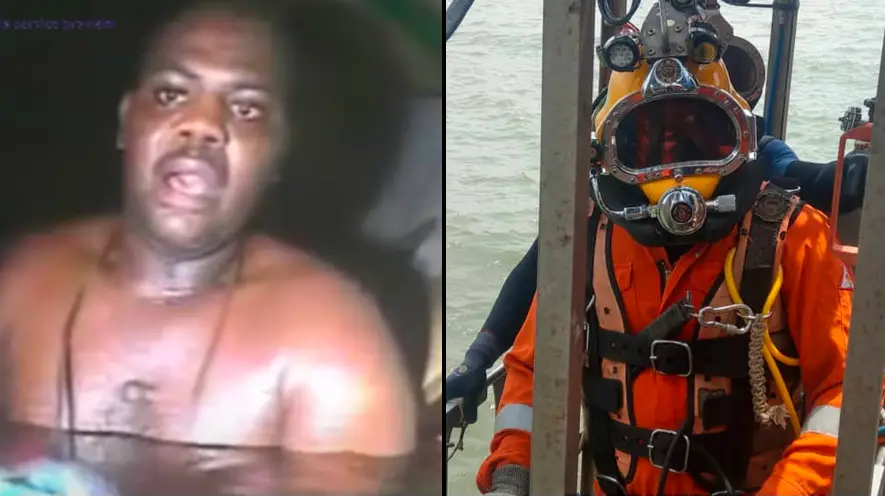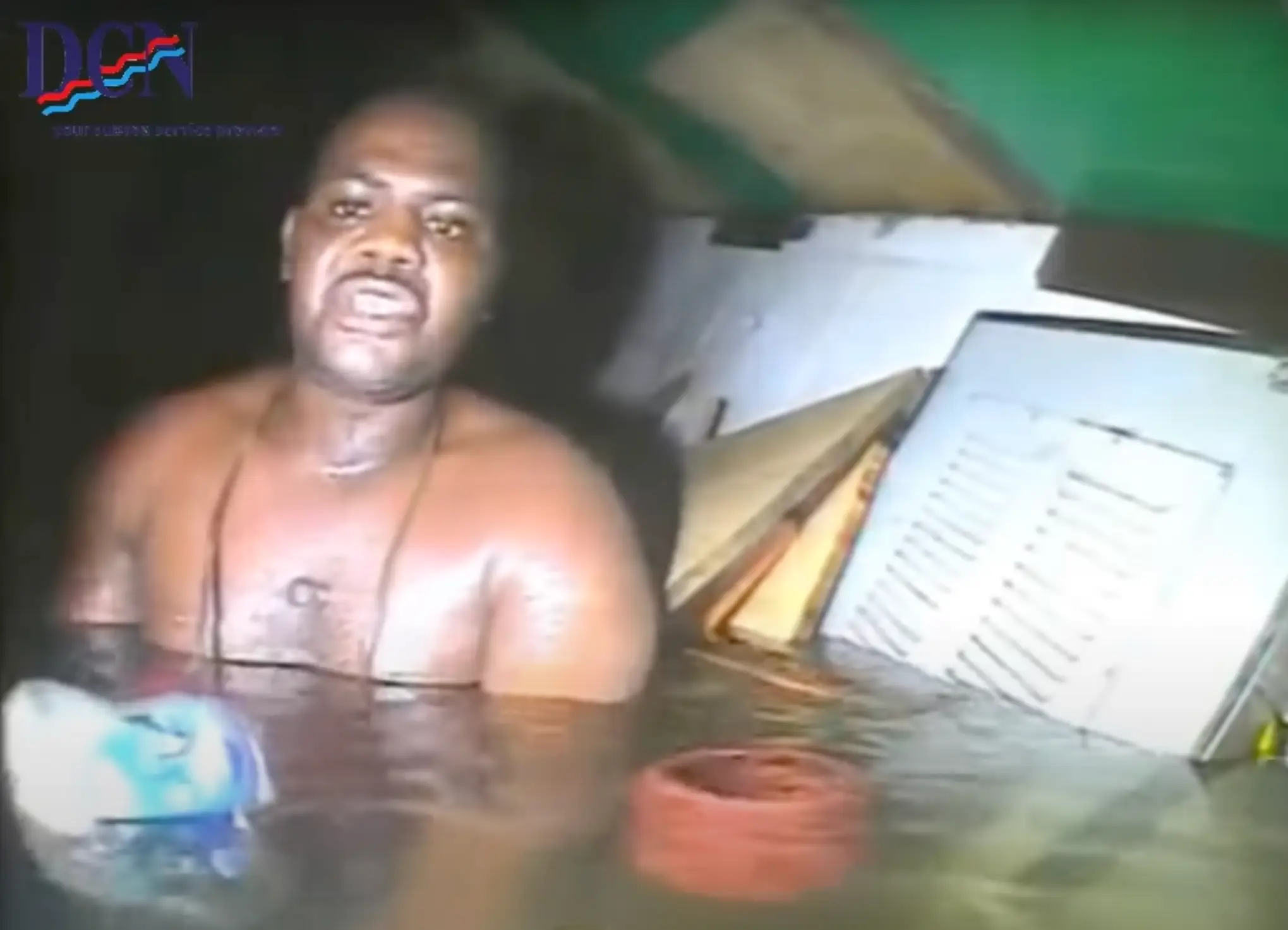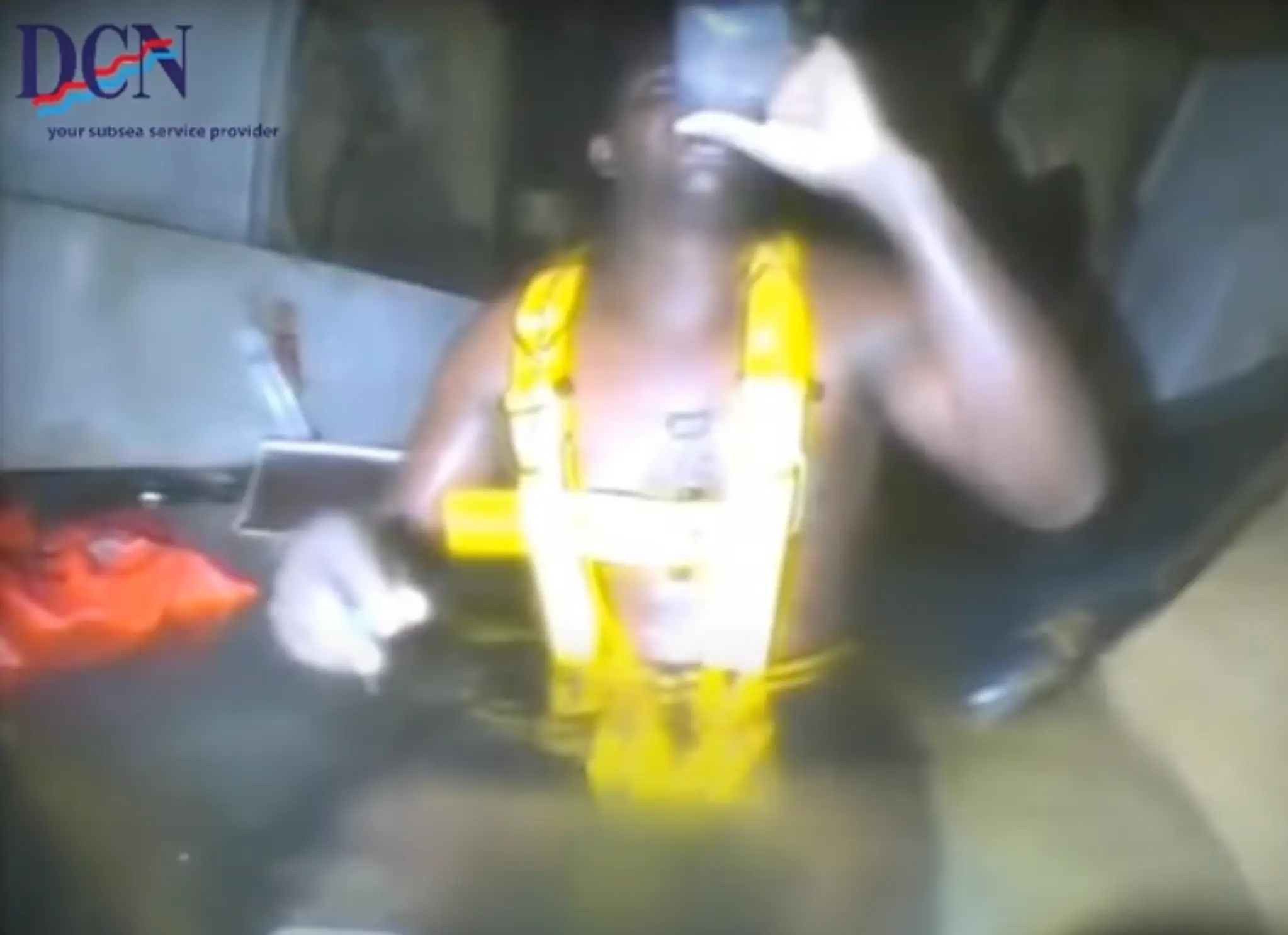
A man who was trapped in a sunken ship for almost three days somehow managed to survive the ordeal.
What started out as just another day for Harrison Okene turned into a terrifying situation that he will surely never forget.
Okene was one of 12 men on the Jascon-4 that sank on 26 May 2013 off the coast of Nigeria, which sank 100ft to the sea floor.
Advert
A towering wave had smashed through the side of the boat, causing it to capsize.
At the time, Okene, who was the boat's cook, had just woken up and was on the toilet.
Speaking to 9News last year, he said: “Before we knew, we were sinking.
"We had been sailing for many years, we knew the sea, we had never had any issues before."
While on a desperate mission to escape, he was forced into the ship officer’s toilet - but that event would miraculously save his life.

An air pocket had formed in the small space, which allowed the then 29-year-old to keep breathing whilst his body was submerged in the water.
“I was struggling to stay alive, wondering how long it (the air pocket) would last me." he said.
"I was thinking about my family, my wife, what would happen, how would she live, how can I get out, thinking about my life as well.”
With only a bottle of Coke for sustenance and two flashlights which eventually gave out, Okene was stuck in the dark for 60 hours before he began to hear hammering noises.
Although he was initially afraid that it might be 'sharks', luckily for him, the noises were diving crew from DCN, who were there to retrieve bodies from the shipwreck.
Okene then reached out to touch the scuba gear of diver Nico van Heerden - being careful not to frighten him.
Alex Gibbs, a life support technician on duty at the time, recalled: “I was shocked and then a bit excited. Nobody thought there was anyone alive.”
But the rescue was nowhere near over yet.

Due to the length of time Okene had spent under the water, the team had him do stops to avoid decompression sickness - which happens when nitrogen bubbles form in the bloodstream and body tissues.
But something even more dangerous was also happening to Okene.
Gibbs added: "Contrary to popular belief, when people are trapped in confined spaces it is not the oxygen running out that will kill you, it is your own exhaled breath causing a build-up of CO2.
"By the time he had been found, this was at a clearly high level.
"You can see him panting in the video and his slightly glazed eyes caused by this."
But his experience hasn't put him off going back into the water, as nearly a decade later, Okene is now a IMCA Class Two Commercial Air Diver.
Calling the ocean 'his world', he added: “I'm enjoying diving, it’s life for me, it’s fun.”
Topics: World News